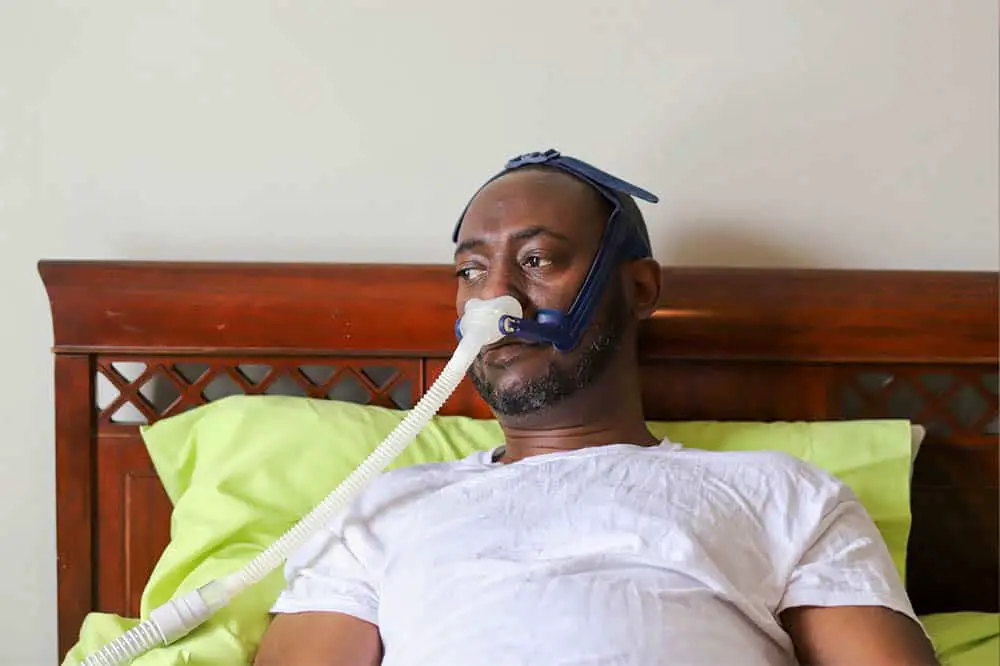Whether you intend to nap for 20 minutes or 2 hours, it isn’t wise to nap without a CPAP if you have sleep apnea.
If you don’t have your CPAP to hand - say if you’re traveling or at a friend’s house - it is advised to push through the thoughts of napping.
CPAP masks, humidifiers, and tubes should all be cleaned after use. Whilst we understand that those who struggle with sleep apnea are more likely to feel the need to relax and nap, this can be quite a hassle.
There’s not much point in cleaning your CPAP equipment after you have woken up in the morning only to clean it again after a midday nap.
If you are desperate for a nap during the day, you will have to compromise with yourself and make sure to clean the CPAP equipment afterward.

We recommend taking off any makeup to help with this - though this can be a pain for midday naps when you are likely to want to continue wearing makeup.
CPAPs are designed to help those with sleep apnea to sleep better without disruptions.
As people nap when they haven’t had a good sleep the night before, it only makes sense to have a comfortable nap to rejuvenate them.
A nap without a CPAP will not be helpful for this - if anything, it might make you more tired.
Due to the nature of sleep apnea, even naps can be harmful to your breathing and health if you do not wear a CPAP.
Unfortunately, people aren’t safe from sleep apnea even during naps, so it’s important to take the appropriate steps to improve your wellbeing.
Of course, if you find that your body can handle short naps when lying on your side without a CPAP, then you won’t need to use a CPAP.
For those who intend to nap for longer periods of time rather than a 20-minute power nap, then a CPAP is recommended.
Some people will have structured sleep apnea, where they know exactly what the trigger is by their sleeping position, they may understand their REM cycle, and they may know what their body needs at the time.
For the most part, sleep apnea is very individual to the person and each case must be considered on a personal scale.
If in doubt, it is always best to ask your doctor when you start to use your CPAP machine.
Do naps help with sleep apnea?
Whilst sleep apnea is an exhausting condition that may encourage people to take naps, this isn’t recommended. Napping is still a form of sleeping, and people with sleep apnea will experience apneas during these naps.
Napping for people without sleep apnea can go one of two ways.
A 20-minute power nap may be exactly what a person needs to energize their body when they are tired. Some might want to nap for longer, which can leave the person feeling groggy and worse than they did before.
For those with sleep apnea, the latter is the most common outcome of napping. Especially if you aren’t using a CPAP, as a nap will only force regular apneas.
Of course, some people might find that they can nap in certain positions for half an hour without any apneas, but this cannot be said for everyone.
It is mostly recommended to avoid napping when you have sleep apnea because naps can affect the way you sleep at night.
We understand that sleep apnea causes a lot of exhaustion and fatigue throughout the day, and sometimes a nap might seem the only option.
However, if you power through and skip the nap, your tiredness will carry out through the day which will actually help you sleep better at night.
A person with sleep apnea is more likely to have a better night’s sleep when they are completely exhausted than a person with sleep apnea who took a nap during the day.
The same goes for those with other sleeping disorders such as insomnia. Whilst it seems barbaric and cruel, it’s safer for your body to exhaust itself throughout the day to have a better chance of sleeping at night.
A nap during the day will only disrupt your sleep at night. Naps are a short-term solution to a long-term problem, and the same goes for sleep apnea.
If you are desperate for a nap and there is no other option but to nap for 30 minutes or so, we highly recommend using your CPAP.
A nap is still a form of sleep, which can still affect and awaken the symptoms of sleep apnea.
Napping with sleep apnea can also slowly deteriorate your body in the same way sleeping without a CPAP can affect sleep apnea, so it is best to avoid napping.

Damon Wiseley is a Registered Respiratory Therapist and Certified Pulmonary Function Technologist.
